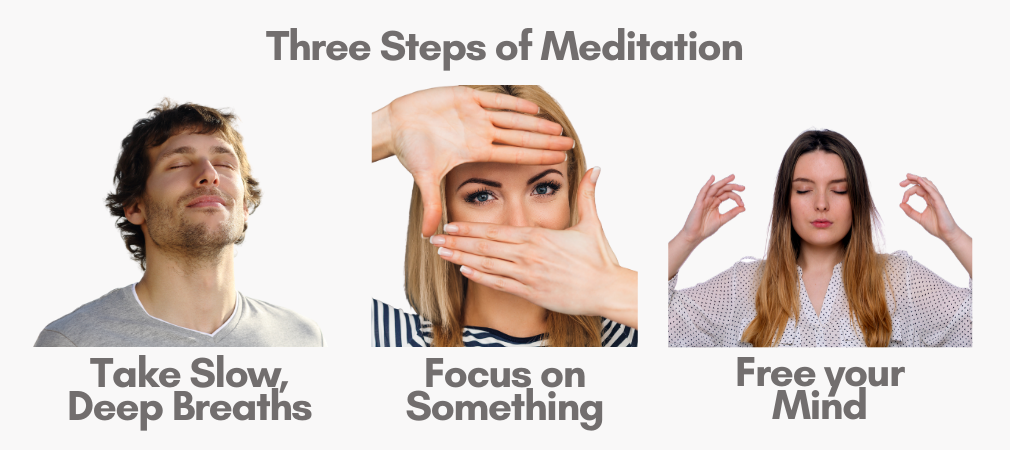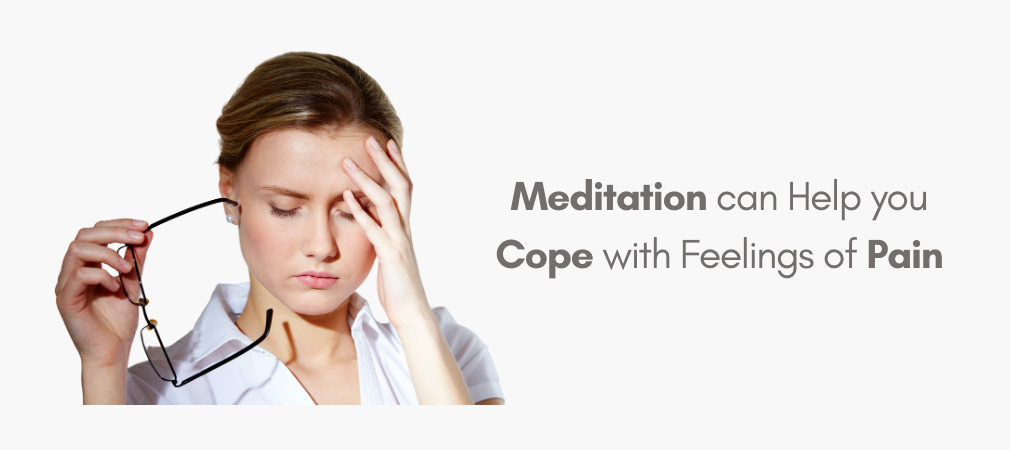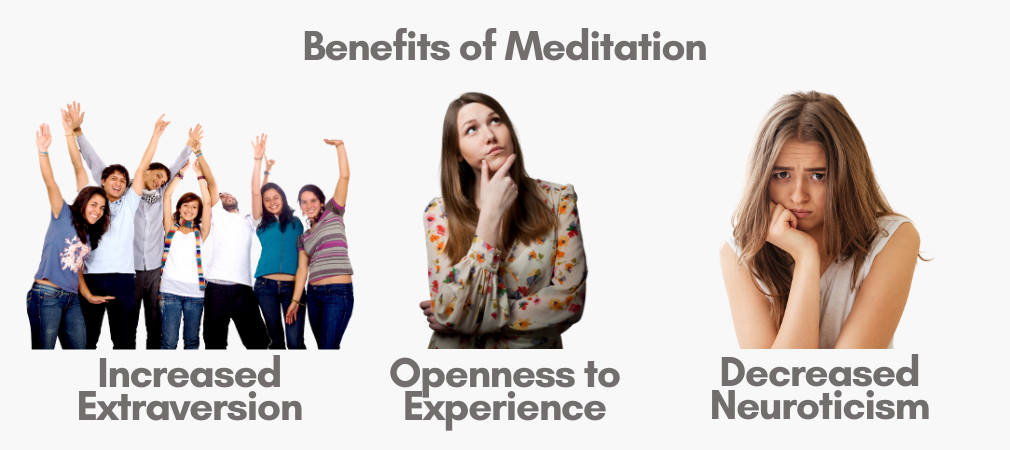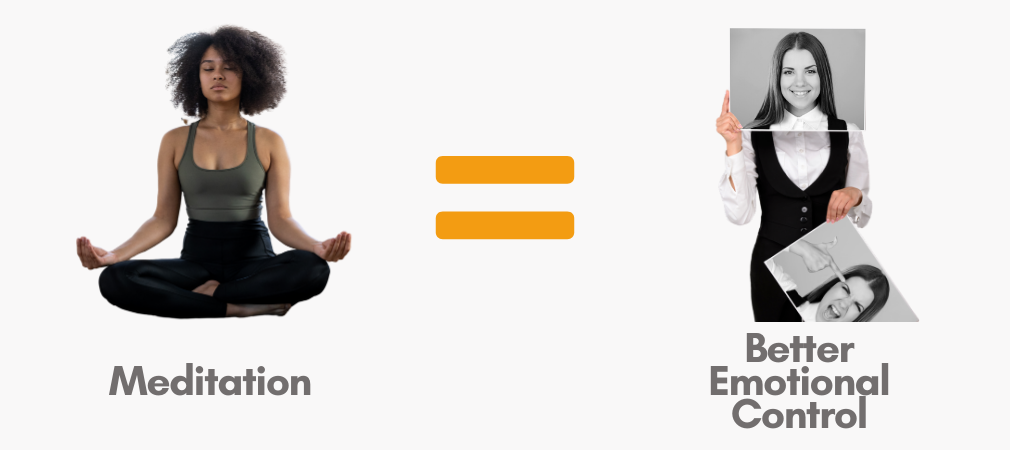How Much Meditation Do You Need
To Experience the Benefits?
Chances are you’ve heard about meditation or mindfulness, and the many benefits these techniques can provide.
But like anything in life you are interested in pursuing, time is required.
And when faced with a new task or opportunity, we often do a quick cost-benefit analysis in our head to decide if we are going to allocate our time towards doing something new or taking a pass.
Creswell et al. (2014) appear to be tight on time as they conducted a study to examine the effectiveness of meditation when people spend considerably less time doing it.
Given that most studies about meditation require participants to complete an 8-10 week session, Creswell and colleagues decided to have study participants complete three, 25-minute sessions before engaging in a stressful event (they were informed they would be giving a presentation as a stressor) to examine if meditating was beneficial for stress reduction.
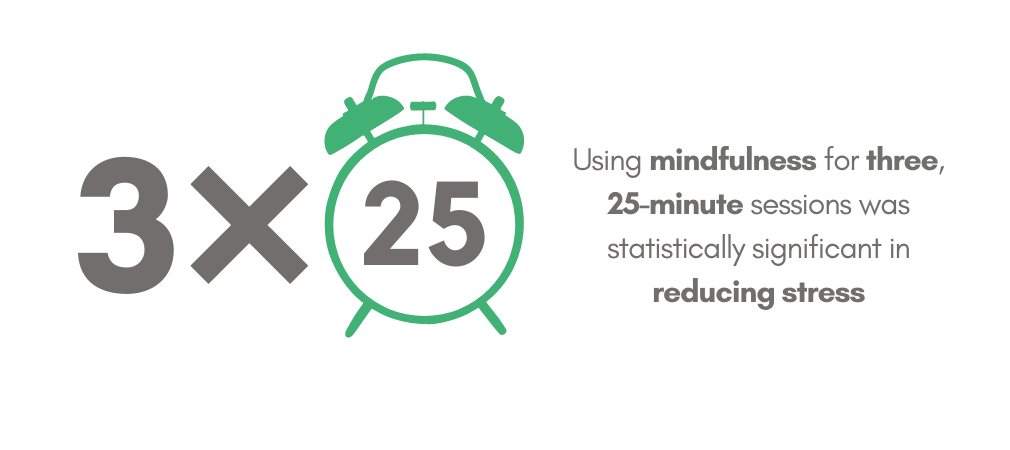
Stress reduction in the study was measured by a self-report questionnaire and a saliva sample (saliva is a way to measure the amount of cortisol, which is the primary stress hormone in our body).
Results showed that merely using mindfulness for three, 25-minute sessions before a stressful event was statistically significant in reducing stress.
For people who are naturally “less mindful” in their daily life, the results were even better!
Take-Home Message
You don’t need to take an 8-10 week course in meditation to experience the benefits (although if you’d like to, please do!). Only doing three, 25-minute sessions of meditation can be effective if you have a stressful event coming up that is bothering you.
And for those interested in utilizing this technique, let’s take a quick look at the core principles of meditation below.
How To Meditate
Many different types of meditation can be used. Here, we will focus on the main principles that are important to include whatever kind of meditation you use.
Get Comfortable and Focus on Your Breathing
Mindfulness doesn’t need to involve sitting. Studies have shown that mindfulness can be effective with people standing, jogging, and even washing dishes.
The key is to get into a comfortable position and breathe slowly from your diaphragm.
Have Something to Focus on
To maximize the benefits you can experience from being mindful, you are going to need an anchor.
An anchor can be just about anything as long as you are locked onto it. It could be a picture on the wall, an image in your mind, focus of your breathing, looking at treetops while you walk, etc.
Free Your Mind
Now that you are comfortably breathing and locked onto something, it’s time to let go of your thoughts. This can be tough, given we are always thinking.
The goal here is to allow thoughts to come into your mind and avoid judging or engaging with them. Treat them as if they were thought bubbles showing up in a foreign language that you cannot understand.
Those of you struggling to stay focused, quickly remind yourself that you likely have 16 waking hours in a day to deal with your thoughts. You can afford to take 10 minutes off.
If you catch yourself drifting or engaging in your thoughts, no worries.
Acknowledge that you are doing this and return your focus to slow, deep breathing and locking onto your anchor.
3 Benefits Of Meditation
Now that you know the main principles of meditating; hopefully, you are ready to start (or continue if you already use this technique). If you still need a little more convincing, let’s take a quick look at three more benefits.
Helps Reduce Pain
I’d love to tell you that meditation is a panacea for eliminating pain.
It’s not.
But for anyone who struggles with chronic pain, any tool in the tool bag that can help reduce pain is well worth keeping.
Brown and Jones (2010) found that people who meditate, anticipate the feeling of pain differently, which causes them less distress.
Another key finding was that people who meditate thought less negatively about their pain.
Both of these benefits help to reduce the feeling of pain in the body.
Change Your Personality
It was once thought in psychological research that personality was static.
The theory was that personality is formed in your developmental years and never really changed later in life.
We now know that’s not the case.
The brain is more plastic (flexible) than initially thought, and new renewal corrections can be made throughout the life span.
Van den Hurk et al. (2011) conducted a study that looked at the impact of mindfulness meditation.
Results showed that meditation helped to make people more extraverted, open to experience and reduce neuroticism.
Let’s take a closer look at what each of these three terms mean.
Extraversion: It is not only an increased desire to engage with other people, but it’s frequently linked with positive emotions.
Open to experience: Involves being accepting of new ways of thinking, as well as being sensitive to other people’s feelings.
Neuroticism: Is a term linked to negative emotions such as anxiety, sadness, irritability, etc.
So, if you are interested in becoming more extroverted, more open to experience, and less neurotic, mindfulness meditation could positively massage your personality.
Better Control of Emotions
Managing emotions is easily one of the most challenging things to do in life.
If we were all robots and strictly logical, life would be a much smoother ride.
It would be boring, though.
So, we need emotions to provide variety and fulfillment to life, and fortunately, meditation can help give us better control of our emotions.
Lin et al. (2016) found that people who meditate have better control of their emotions after being exposed to an upsetting image.
Given the current challenges in our world, it has never been more critical to manage emotions, especially when faced with challenging or upsetting images.
Have you ever tried meditating before?
Did you find it difficult to do?
